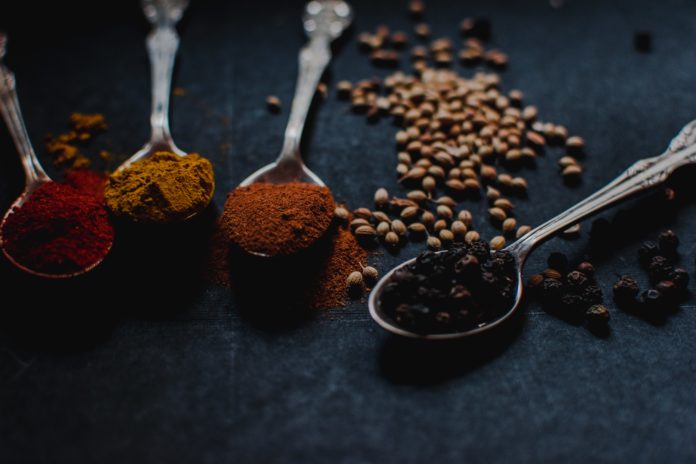I was watching Netflix the other day and happened upon an episode of Chef’s Table with chef Asma Khan. The show features chefs from the world sharing their deeply personal stories and inspirations around food. During her episode, Khan chats about suffering from depression. She decides to leave London where she was living with her husband, deeply unhappy and return to India.
There’s a scene in the show as she narrates her return to India where Khan is in the kitchen with her mother and her sister and they are cooking. This scene made me tear up. I suppose it was because the scene felt so familiar. From a young age, I would watch my mother in the kitchen, whipping up the most amazing and scrumptious foods. At family functions, the women would all gather in the kitchens or even in the backyards preparing the loveliest – and largest – of meals. My cousins and I still joke that we don’t know how they all manage to understand each other. There’s always the sounds of different pieces of advice being thrown around accompanied by the sizzling of onions and spices on the stoves. It’s an enduring memory of my mother, late grandmother and my aunts all working together.
As for me, I’ve resisted getting actively involved in cooking. And it’s taken me a long time to untangle my complicated feelings around this important cultural heritage.
For the longest time I believed that meant something was wrong with me. I mean which Indian South African woman doesn’t not like to cook? I was also shamed for it. It was often assumed that I was lazy. It was the idea that I probably could cook but I was just too lazy to cook. And this had frustrated me for a very long time. Firstly that I was being shamed for not cooking, then there was the shame I felt for not caring about cooking. But afterwards when I became more versed in the concepts of the patriarchy, feminism and gender roles, I got angry.
I was angry that I had felt ashamed about my lack of interest in the kitchen. Instead I wondered when it had been decided that women were the ones who should bear the sole responsibility for the kitchen. It’s not difficult to see how gendered cooking and domestic work is in most households in my community.
These feelings of anger just increased every time I saw this repeat itself at family gatherings. My female cousins and I would be setting the tables and clearing up while the older women would be cooking the food and then later dishing it out. Most of the time, women would only start eating after all these chores are complete. So while there was immeasurable joy in preparing the food, there was also a glaring injustice.
My feelings only got more complicated over time. It was further complicated when I began to realise how important food is to my people. When so much of your identity and history has been removed, food was a refuge for my people. Food isn’t food but it’s a love language in my household and family. It’s a story and tradition passed down from generation to generation. It’s a balm for broken hearts and medicine to cure any illness. There’s the special food cooked when a woman gives birth. There is a special milk drink made during funerals. Food is a way of expressing love in a culture and tradition where affection isn’t easily expressed. “I love you” and other words of affection aren’t so easily expressed in my family and community. But it was shown rather. It was the hot bowl of soup made from scratch because of a sick family member. It was some much more than just ingredients put together.
And more than that it told the story of my people. It’s a story of a journey of people who travelled over oceans from India to come to South Africa. Food was the journey to a place to set up a life and family. There’s a famous Indian cookbook edited by Zuleikha Mayet called Indian Delights that narrates this history very well. It is the book passed down from generations. It is bought for young women before they get married. My mother still has her copy, the pages are yellowed and torn but it is still a feature of her life in the kitchen.
While I’m still on my journey of reflecting around the patriarchy of the food, I’ve come to several realisations. I will continue to be angry and hope for change and equality in the kitchen. But at the same time, I can appreciate the role the kitchen plays for many women in my family as a site of power for them. After all, much has been written about how cooking can be feminist in nature. And finally, cooking has shown us how women were and continue to be the people who protect and past down heritage, culture, memory and history. And there is nothing more powerful than that. It should be celebrated without ignoring the need for reform.









